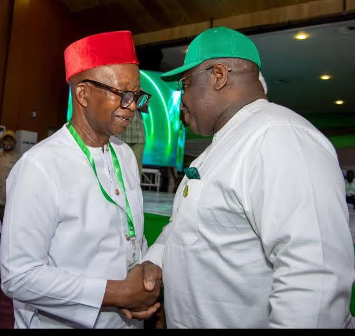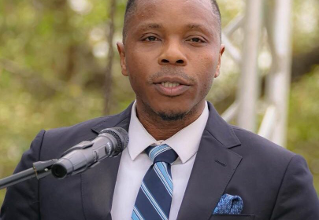APC Rejects SLPP’s One-Party Agenda

By Kelvin Jay
The All People’s Congress (APC) has strongly rejected what it describes as the SLPP government’s brazen attempt to impose a Proportional Representation (PR) system, introduce a power-sharing arrangement, and create new districts. The APC warns that these moves represent a dangerous subversion of Sierra Leone’s democracy and constitution, designed to entrench a de facto one-party state.
The APC emphasized that the 1991 Constitution clearly establishes the First-Past-the-Post (FPTP) electoral system as the preferred mode of representation. The PR system, it noted, is only contemplated in exceptional circumstances such as when constituencies cannot be drawn or during a national crisis. “Sierra Leone is not in crisis, and constituency boundaries are well-defined. Any attempt to permanently replace FPTP with PR is unconstitutional and will be resisted,” the APC declared.
The party expressed deep suspicion over the timing and motive of this push. It recalled that, under Resolution 78 of the Tripartite Committee, the government conducted a nationwide consultation culminating in a national conference. Despite manipulations, the overwhelming consensus of citizens across all regions was a clear demand for a return to the transparent FPTP constituency system. “To ignore the will of the people is tantamount to trampling on democracy,” the statement warned.
The APC further condemned attempts to introduce a so-called power-sharing arrangement, under which parliamentary seats and even executive positions would be apportioned. The party described this as a ploy by the ruling party to tighten its grip on power, not a genuine model for national cohesion. “Such experiments have failed catastrophically elsewhere, as in Kenya, where they sparked violence and political crisis. Sierra Leone cannot afford to create a recipe for chaos,” the APC stressed.
On the issue of new districts, the APC denounced the process as lacking transparency, legal justification, and genuine community participation. The party insisted that any administrative restructuring must be grounded in published demographic and fiscal data, clear legal authority, and authentic public consultation. “Attempts to redraw Sierra Leone’s map for political expediency will be resisted,” the statement noted.
The APC reminded citizens that after the disputed 2023 elections, Sierra Leone embarked on dialogue that produced the Bintumani Agreement for National Unity and the Tripartite Committee recommendations. The party stressed that the government’s urgent task is to fully and unconditionally implement these recommendations to ensure free, fair, and credible elections.
In light of these developments, the APC declares:
1. We condemn the government’s unconstitutional attempt to restructure Sierra Leone’s democratic system.
2. We categorically reject the imposition of the PR system by the SLPP as an illegitimate means of clinging to power.
3. We call on the government to cease manipulative actions that undermine democracy and to respect both the will of the people and the Constitution.
4. We demand that the government focus on the true path to peace—the full and unconditional implementation of the Tripartite Committee recommendations.
5. We call on all patriotic Sierra Leoneans, civil society, religious leaders, and the international community to take note of these dangerous developments and join in demanding the implementation of the Tripartite Report.
6. We demand an immediate end to unconstitutional manipulations, and respect for the expressed will of the people.
The APC reaffirmed its commitment to mobilize all lawful and peaceful means of protest to resist these undemocratic proposals. “We will stand shoulder-to-shoulder with the people of Sierra Leone to defend our hard-won peace and multi-party democracy, and to uphold the right of citizens to choose their leaders through a transparent, constituency-based First-Past-the-Post system. Sierra Leone belongs to all its citizens, not to a ruling party desperate to cling to power through constitutional fraud.”





